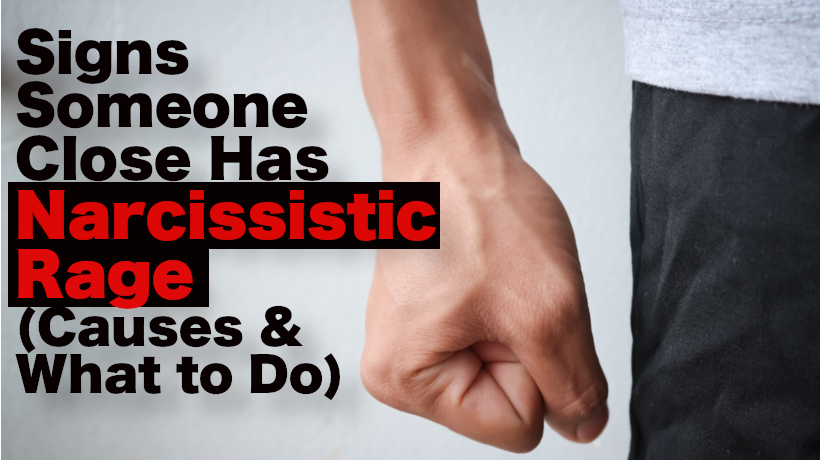Narcissistic rage can be defined as “intense anger, aggression, or passive-aggression when a narcissist experiences a setback or disappointment, which shatters his (or her) illusions of grandiosity, entitlement, and superiority, and triggers inner inadequacy, shame, and vulnerability,” according to Preston Ni M.S.B.A.
Below are a few scenarios in which narcissistic rage may occur:
The narcissist is criticized in some way and their self-esteem is affected
People may experience narcissistic rage when their self-esteem is easily injured. When narcissists are hurt, they tend to lash out as their first line of defense according to Jennifer Litner, LMFT, CST. In order to protect themselves and the image they have created, they may try to cut someone out or intentionally hurt them (either with words or violence) to try and get someone to back off.
When someone challenges their lies and confidence
Narcissists love to have a grandiose sense of self-importance. Their confidence is unnecessarily high. If they feel that you are challenging their confidence or if you catch them in their lies that make themselves look better, they will lash out to protect themselves.
“When someone pushes them and exposes a weakness, people with NPD may feel inadequate,” Litner says.
When the narcissist isn’t the center of attention
Narcissists love when they are the center of attention. When something or someone is getting in the way of them basking in the glory (if it even is well-deserved), they tend to lash out to get the attention back on themselves.
When the narcissist is caught breaking rules, violating social norms or disregarding boundaries
According to Preston Ni, the narcissist may tend to lash out at someone when the world does not serve them in the way they expect to be served. Ni points out an example of an angry customer saying “How dare you talk to me this way in front of my son!” when he is being called out for blatantly cutting in line.
When narcissists are being asked to be accountable for his or her own actions, they tend to lash out, according to Ni.
Dealing with Narcissistic Rage
In many cases, you should talk to a doctor or psychologist to see if the person can get diagnosed. Litner notes that psychotherapy may work for some people, but it may not work for all. This is why it is best to have many ways to deal with narcissism if you or a loved one experiences the rage as a side effect.
How to deal with narcissistic rage:
At Work
If you know someone who frequently engages in narcissistic rage at work, Litner recommends limiting engagement with the individual, being cautious when giving feedback or criticism, and preparing yourself to manage their future professional deficiencies.
“It’s not your responsibility to get the person to seek help.” Litner reminds. “Your feedback or criticism may be one way you’re able to encourage the individual to seek help.”
If things get out of hand, talk to your manager or the company’s Human Resources department.
In relationships
If you are in a relationship with a narcissist who has episodes of outrage, both parties may need to seek out therapy to build better communication, according to Litner. Litner recommends trying some coping strategies for those who have narcissistic tendencies and personalities:
- avoid lying or deception
- recognize the symptoms in your partner or yourself and do your best to communicate what you are thinking when they exhibit negative behaviors
- don’t hold yourself or your partner to impossible standards
- have specific rules and boundaries for your relationship
- seek therapy or couples counseling
- If all else fails, be confident in ending the relationship
In friends
Litner recommends limiting your exposure to any friend who takes advantage of you or “subjects you to physical, mental, or emotional harm from narcissistic rage.” For friendships there are only two options:
- end the friendship if you believe the friendship is no longer healthy
- seek help from a mental health professional to make coping easier for closer bonds and friendships.
From a stranger
Litner suggests not taking things personally and just walk away. There is no benefit from wasting extra energy trying to convince them to a constructive conclusion. Litner also reminds others that outbursts from a stranger are usually not your fault. “It’s driven by underlying factors that you don’t in any way influence.”
Sources:



